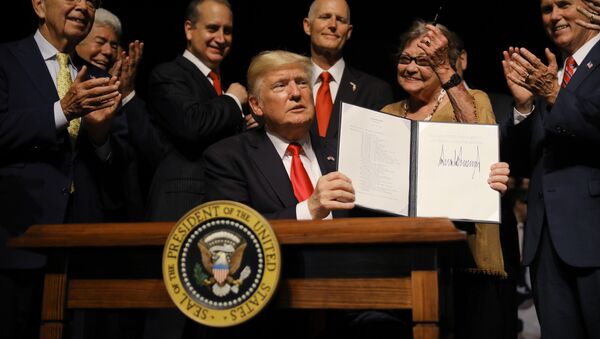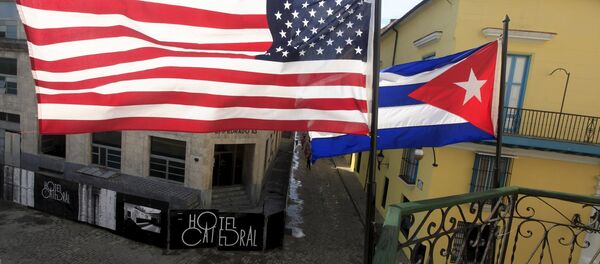"It appears that high-level contacts between the US and Cuban governments have already stalled, compared to the last two years of the Obama administration," Duany said. "Some of the initial exchanges regarding drug trafficking, human smuggling, environmental issues, and migration may be put on hold by the Trump administration. The educational, scientific, and cultural exchanges facilitated by Obama might still continue under the Trump era."
Duany noted that although the US and Cuban governments have expressed a desire to continue a dialogue on issues of mutual interest, the atmosphere for these conversations seems "more charged than during the last term of the Obama presidency."
"At least rhetorically, the two governments seem to have returned to their entrenched Cold War positions before December 17, 2014," he stated.
Thursday marks the second anniversary of the official restoration of diplomatic relations between Washington and Havana after more than 50 years of severed ties. The warming of relations came as a result of then President Barack Obama’s decision in December 2014 to pursue a path toward normalizing relations with Cuba.
In June, however, US President Donald Trump announced his administration would roll back Obama's efforts to re-establish ties with Cuba. Trump said there would be new business and travel restrictions imposed on Havana, and Washington will retain the existing embargo.
"The Trump administration is currently involved in spelling out how the presidential directive signed on June 16 will be implemented by various US government agencies, such as the departments of the Treasury and Commerce," Duany noted. "It is crucial that the new regulations clarify just how the prohibitions against dealing with entities controlled by the Cuban armed forces or individual people-to-people travel will be put into practice."
The director noted that while at this point, it remains unclear whether Trump’s partial reversal of Obama’s policies toward Cuba will affect the fledgling private sector of the Cuban economy.
"Should the number of US travelers to Cuba be reduced, many small businesses related to the tourist industry on the Island could be hurt by a decreased demand for their services," he added.
When commenting on the results archived during the two years of the normalization process, Duany emphasized that the pace of normalization was swift in some areas, such as the removal of Cuba from the US State Department’s list of state sponsors of terrorism, the reestablishment of diplomatic relations between the two countries, or the opening of embassies in Washington and Havana.
"The most significant change since December 17, 2014, when Barack Obama and Raúl Castro announced the beginning of the thaw in U.S.-Cuba relations, has been the spectacular increase in the number of U.S. travelers to Cuba," he added.
"In other areas, such as U.S. trade and investment in Cuba, the situation has remained intractabale, especially given the persistence of the U.S. embargo of the Island," Duany concluded.
Last week, Cuban President Raul Castro criticized the new US policy, which excludes the possibility of continuing a bilateral dialogue or the implementation of the previously signed agreements between the two countries, but noted that Cuba nevertheless wishes to engage in dialogue with the United States.
Cuban officials warned in June that a reversal of Washington’s policy toward Havana would fail. Moreover, Cuba has hit back by accusing the United States of a huge number of murders and misconduct by its police as well as of illegal detention and torture of prisoners in the US detention center at Guantanamo Bay.
On July 20, 2015 the United States and Cuba reestablished full diplomatic relations by reopening embassies in their respective capitals after 54 years of hostility.





